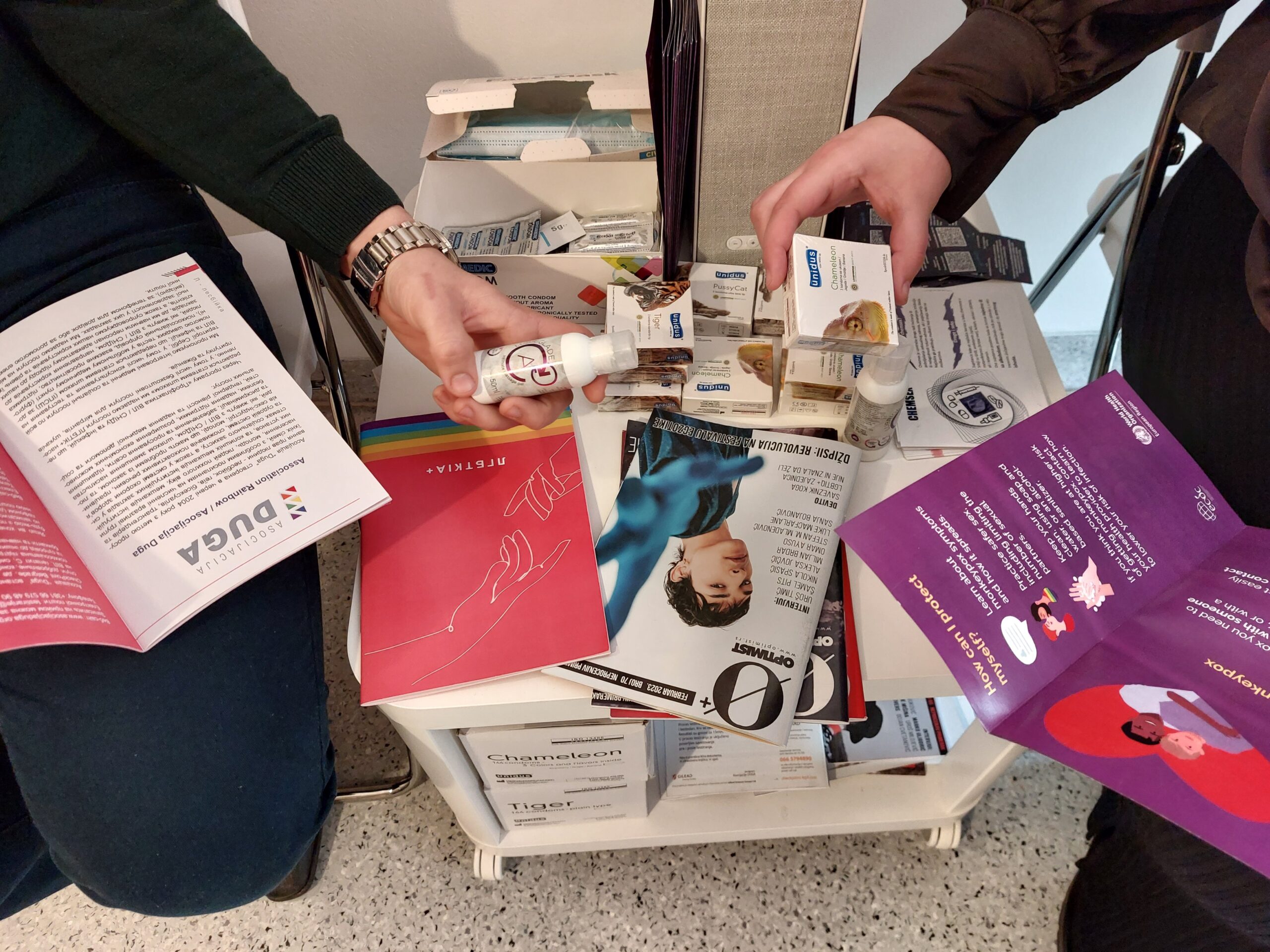Community-based and community-led testing services are crucial in the HIV/AIDS, viral hepatitis, and sexually transmitted infections response, particularly in reaching populations where diagnosis and linkage to care are lower than the national average. However, providing these services can be challenging, especially in environments that may be hostile towards community-based and -led service delivery, and where policy and legal barriers exist.
In 2022-2023, the COBATEST Network supported six member organizations in countries where the environment is particularly challenging for community-based and community-led service delivery. In the interview with Asocijacija DUGA, one of the 6 organisation supported, they asked the organisation to tell about their work, the challenges they face, and how they are working to improve community-based testing services for HIV/AIDS, viral hepatitis, and sexually transmitted infections in their communities.
Replying to the question about the role that CBVCT plays in reaching this community in Serbia, they said:
 Community-based and community-led testing (CBVCT) centers have a crucial role in reaching of GBTMSM population in Serbia. This is mainly due to the fact that the population is still significantly stigmatized and discriminated. This is also noticeable within the system of public health institutions. The most of the VCCT centers exist only in bigger cities, and even not all of them have sufficiently sensitized staff in order to properly approach and address the needs of the community. Therefore, majority of the target population rather chooses CBVCT as a place they would like to get the information, counseling and testing services.
Community-based and community-led testing (CBVCT) centers have a crucial role in reaching of GBTMSM population in Serbia. This is mainly due to the fact that the population is still significantly stigmatized and discriminated. This is also noticeable within the system of public health institutions. The most of the VCCT centers exist only in bigger cities, and even not all of them have sufficiently sensitized staff in order to properly approach and address the needs of the community. Therefore, majority of the target population rather chooses CBVCT as a place they would like to get the information, counseling and testing services.
Nowadays, as we are faced with the greater influx of the clients coming from the migrant population, CBVCT approach becomes even more important. No matter if they come from migrant, refugee or asylum seeker community, and belong to the GBTMSM population (which make significant share), they usually find information through the community based organizations and their social networks, as they are more accessible, so we are usually the first they approach to ask for services. Many of migrants belong to the population of PLHIV, and we were able to ensure they get linkage to care as well as to regulate their health insurance status, in order to continue using therapy in Serbia, which would be very difficult to achieve without support of CBVCT organizations.
You can read this interesting interview following this link>>>.





 During first days of the epidemic in Serbia, team of the Association Duga from Šabac, Serbia, visited suburbs with Roma populations and various vulnerable populations to inform them about preventive measures against coronavirus. They dedicated special attention to those who recently returned from the areas with high epidemics – Italy, Germany and Austria – who either came to visit their families back home or returned from seasonal work (especially sex workers).
During first days of the epidemic in Serbia, team of the Association Duga from Šabac, Serbia, visited suburbs with Roma populations and various vulnerable populations to inform them about preventive measures against coronavirus. They dedicated special attention to those who recently returned from the areas with high epidemics – Italy, Germany and Austria – who either came to visit their families back home or returned from seasonal work (especially sex workers).


 European Testing Week offers partners across Europe the unique opportunity to unite to increase awareness of the benefits of early HIV and hepatitis testing among those who are at risk and promote increased access to testing. In 2019, more than 750 organisations from across 49 countries took part in ETW and thousands more people are now aware of their HIV and hepatitis status.
European Testing Week offers partners across Europe the unique opportunity to unite to increase awareness of the benefits of early HIV and hepatitis testing among those who are at risk and promote increased access to testing. In 2019, more than 750 organisations from across 49 countries took part in ETW and thousands more people are now aware of their HIV and hepatitis status.

 Also, the
Also, the